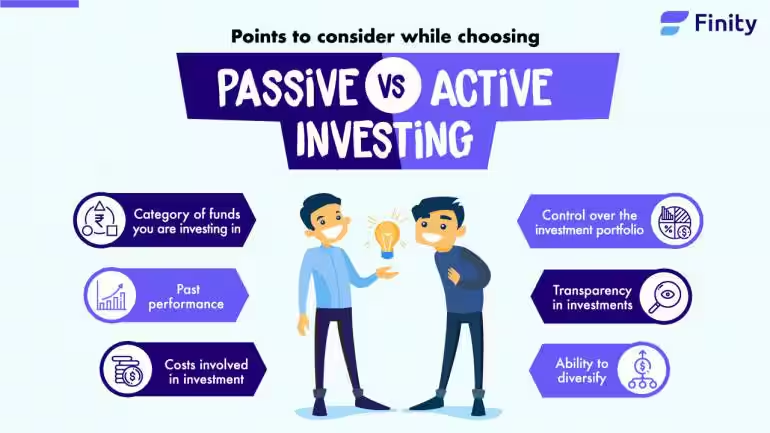The raging debate between Active Vs Passive Funds has been going on for a long time in the world of investments. Let’s understand how these funds are different and which one is better for your portfolio.
Active Funds: These are funds that are managed by a fund manager. The fund manager invests by studying the market and the economy.

Passive Funds: These funds track a benchmark index. So, the returns of the index are translated into the returns.
Which one is better for your portfolio?
Several studies have been conducted, more in the western world, over the last several decades to find out if passive funds perform better than active funds. Usually, one full cycle, comprising of bull and bear phase, should be considered for drawing any meaningful conclusion.
According to SEBI-registered investment advisor Gaurav Goel, it has been widely noted that these passive or low volatility funds typically outperform other funds in an environment where interest rates are declining.
On the other hand, active funds often do better in an environment where interest rates are rising. When all else is equal, the differential compounding of index funds (passive) yields comparatively larger returns over time since they have lower expense ratios. According to Goel, about 85% of fund managers in the US underperform the index funds.
“The aforementioned numbers seem accurate when taken as a whole, especially in the context of India. The capacity of an investor to find a competent fund manager or “catch the remaining 15 per cent,” he continued, is the key to answering this question.
There are quite a few fund managers in India that have continuously surpassed the returns of index funds for extended periods of time. It should be mentioned that Indian marketplaces are not as developed as those in the United States. In India, the mutual industry is substantially smaller. Even though passive funds have lower expense ratios than active funds, they are still relatively high when compared to the western world.
Let’s understand this with an example
Think about A and B, two investors. They both use mutual funds to participate in the equity markets. A is a busy entrepreneur who does not have time to keep check of his investments. He regularly invests in a few mutual funds that his banker recommended to him, not particularly concerned about the funds’ performance. All that matters to him is the rate of growth of his investments. B, a financial sector expert, on the other hand, thoroughly researches every fund he purchases. He studies the fundamentals, attends fund managers’ calls, keeps tabs on performance, and divides his investments among the best fund managers at the top asset management firms.
It is clear that whereas B should use active funds, A should choose a more passive approach to fund management. In summary, choose actively managed funds if you can find a decent fund manager; if not, continue with index funds for convenience,” he said.






